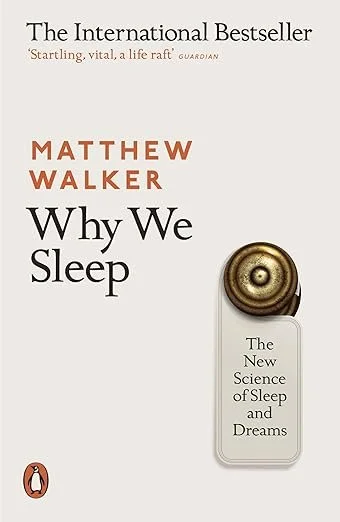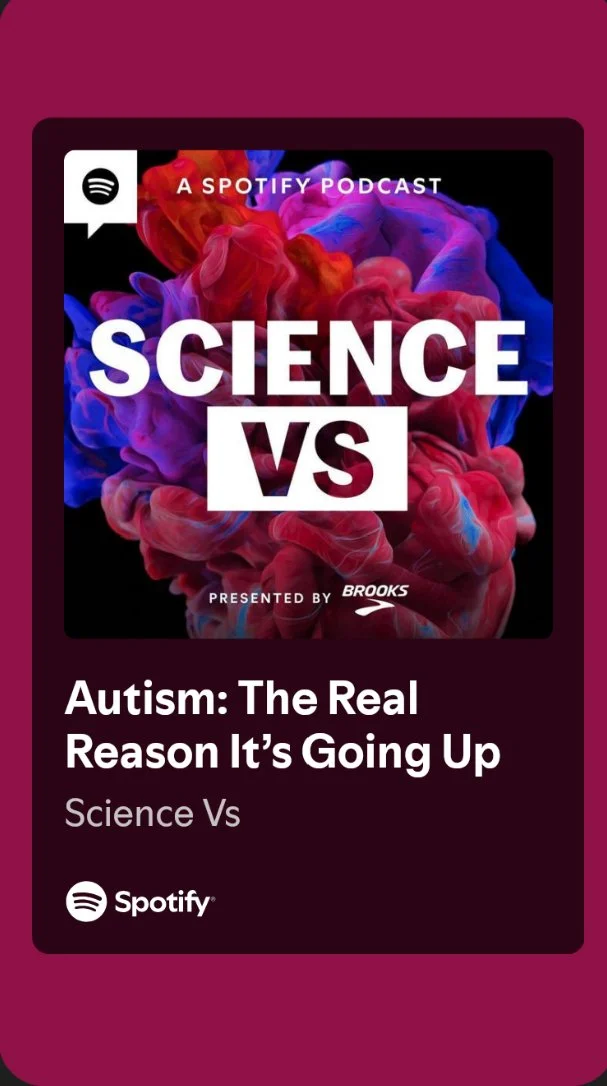Week 5 - Medical Prep Review - Biohacking or Blagging it?
Hello Everyone,
Welcome back to Week 5! Yes - I’ve kept to my promise and started a reliable posting schedule (hopefully). Whether you're preparing for the UCAT or just trying to survive the British heatwave with your brain intact, I hope you’re making the most of summer.
This week, we’re tackling two important (and often misunderstood) areas of medicine: sleep and autism. One affects everyone; the other is a growing topic in public health, education, and ethics. Both are worth your attention.
Let’s get into it.
Book of the Week: Why We Sleep by Dr. Matthew Walker
Out of all the science books I’ve read, this one shocked me the most. Don’t get me wrong, I always knew my 4:00am bedtimes followed by 9:00am lectures weren’t ideal, but I didn’t realise just how bad they were. From being told I’ve increased my risk of cancer to shaving several years off my life, suddenly, one more Instagram reel doesn’t seem worth it.
Dr. Walker breaks down the stages of sleep, the difference between REM and non-REM, and how crucial sleep is for memory consolidation, especially if you're a student trying to memorise thousands of flashcards. It also highlights how chronically sleep-deprived we are as a society, and how dangerous that can be for doctors, patients, and public health.
I was particularly fascinated by the ongoing confusion surrounding a deceptively simple question: why do we sleep? How can something that leaves us unconscious and vulnerable for a third of the day be evolutionarily favoured? Initially, sleep was thought to serve an energy conservation role - but saving 200 calories a night hardly justifies such a risky behaviour. This led to theories around restoration: that sleep allows the body to replenish the metabolites we deplete during the day, supported by findings that certain genes are only activated at night. Other theories highlight sleep’s vital role in memory consolidation and creative problem-solving - the idea that sleep helps us form novel connections, just as Kekulé famously dreamt of a snake biting its tail, leading to his discovery of the benzene ring. The most widely accepted theory today is that sleep serves several essential functions at once. Even so, it remains a highly active area of research and one that holds exciting promise for future medical discoveries.
One memorable stat from the book: after daylight savings, there’s a 24% increase in heart attacks the following day, just from one hour less sleep.
For medical applicants, it’s a great read. In fact, I mentioned it in my personal statement and was quizzed on it in my Oxford interview - by a sleep expert who helped write the book! So if you do read it, take notes. You never know when it might come in handy. But more than that, it might just convince you to go to bed early for once. (Yes, even during UCAT prep.)
Podcast of the Week: Science Vs – “Autism: The Real Reason It’s Going Up”
If you’ve ever heard someone say “autism is on the rise” and wondered why, this episode is a must-listen. Science Vs is known for fact-checking big questions using hard evidence, and this episode ridicules JFK Jr.’s claims that environmental toxins (or vaccines) are to blame, and instead explores the real reasons.
So, what’s really behind the rise?
Broader diagnostic criteria
Increased awareness
More accessible services
A cultural shift that allows more people (especially adults) to seek diagnoses
This episode is packed with interviews, statistics, and thoughtful analysis. It also touches on the ethics of labelling, the spectrum nature of autism, and why rising rates aren’t necessarily a bad thing.
If you are interested in psychiatry, or just want to learn more about how diagnostic criteria are designed, this podcast is for you. It’s also just a great reminder of what good science communication sounds like - something every future doctor should aspire to.
That’s all for this week. As always, if you’ve got a favourite book or podcast you'd like to recommend, feel free to reach out at reubencordina@gmail.com or leave a comment below.
Have a great week - and remember, whether you're revising or just trying not to fall asleep in lectures, sleep isn’t optional!
See you soon for Week 6.


